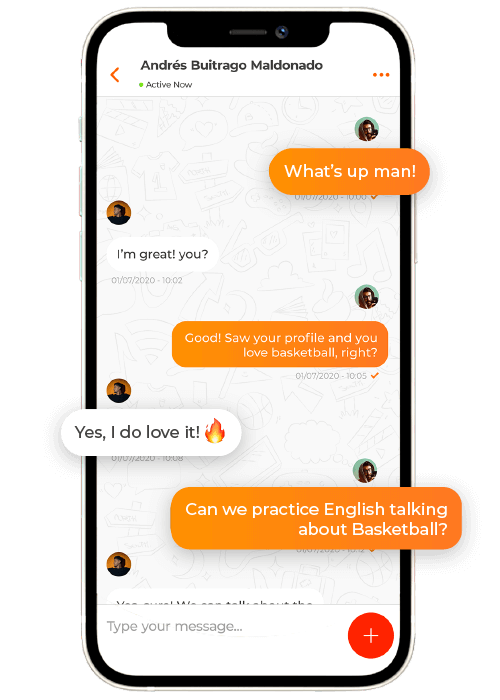Learning Spanish is easy with Bilingual
With our Spanish course you can also learn and practice English and Portuguese, because studying languages will give you new opportunities - Let’s do it!
We recommend you to study and practice from 15 to 30 minutes every day so that you will notice results.
The conditionals in English
What are conditionals?
The conditionals in English are used to refer to real or unreal actions, and in their use, one action depends on another.
Use of the English conditionals
First Conditional
Will can be replaced by other modal verbs.
How to form the first conditional in Spanish?
The following rule must be followed:
- If + Condition in simple present + Result in simple future
 
English |
 
Español |
 
Português |
  If I train, I will win the game. I will win the game if I train. |
  Si entreno, ganaré el juego. Ganaré el juego si entreno. |
  Se eu treinar, eu ganharei o jogo. Ganharei o jogo se treinar. |
  If it does not rain, we will go shopping. We will go shopping if it doesn’t rain. |
  Si no llueve, iremos de compras. Iremos de compras si no llueve. |
  Se não chover, nós iremos às compras. Iremos às compras se não chover. |
  If I study I should pass the quiz. I should pass the quiz if I study. |
  Si estudio, debería pasar el examen. Yo debería pasar el examen si estudio. |
  Se eu estudar, eu deveria passar o quiz. Eu deveria passar o quiz se eu estudar. |
Second Conditional
How to form the second conditional in Spanish?
The following rule must be followed:
- If + Condition in simple past + Result / Would + Infinitive verb
 
English |
 
Español |
 
Português |
  If I won millions of dollars, I would buy many cars. I would buy many cars if I won millions of dollars. |
  Si ganara millones de dólares, compraría muchos carros. Compraría muchos carros si ganara millones de dólares. |
  Se eu ganhasse milhões de dólares, eu compraria muitos carros. Eu compraria muitos carros se eu ganhasse milhões de dólares. |
  If we had more time, we would travel every weekend. We would travel every weekend If we had more time. |
  Si tuviéramos más tiempo, viajaríamos todos los fines de semana. Viajaríamos todos los fines de semana, si tuviéramos más tiempo. |
  Se tivéssemos mais tempo, viajaríamos todos os fins de semana. Nós viajaríamos todos os fins de semana, se tivéssemos mais tempo. |
Third Conditional
How to form the third conditional in Spanish?
The following rule must be followed:
- If + Condition in Past perfect + Result / Would have + Past participle
 
English |
 
Español |
 
Português |
  If I had read the book, I would have passed the test. I would have passed the test If I had read the book. |
  Si hubiera leído el libro, habría pasado la prueba. Habría pasado la prueba si hubiera leído el libro. |
  Se eu tivesse lido o livro, eu teria passado o teste. Eu teria passado o teste se eu tivesse lido o livro. |
  If we had taken a car, we wouldn’t have missed the train. We wouldn’t have missed the train If we had taken a car. |
  Si hubiéramos tomado un carro, no habríamos perdido el tren. No habríamos perdido el tren si hubiéramos tomado un carro. |
  Se tivéssemos tomado um carro, não teríamos perdido o trem. Não teríamos perdido o trem se tivéssemos tomado um carro. |
Keep studying: The present perfect or browse our full Spanish course.
Go back to: Modal verbs
Start practicing in our chat! you only have to download Bilingual. Available on App Store and Google Play.
Learn and practice languages with Bilingua
Learn with our Spanish course and practice any language by downloading Bilingual from App Store or Google Play.






